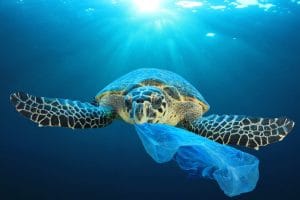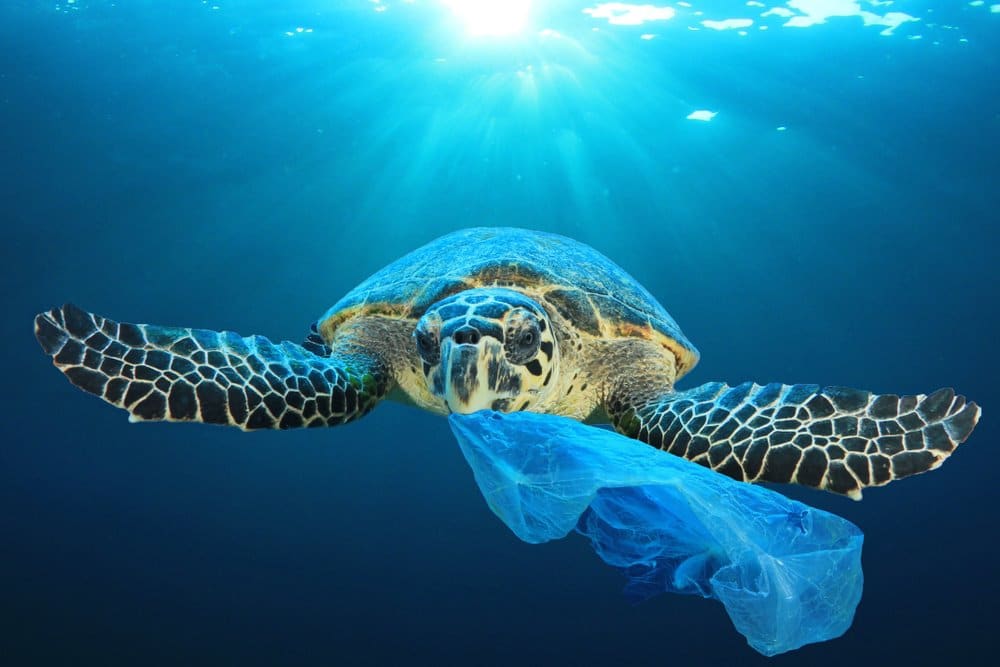
Enlightening documentaries like David Attenborough’s BBC Blue Planet Series and vivid YouTube posts like Richard Horner’s Dive through a sea of plastics have educated and motivated average citizens to demand controls on industry. Shocking videos like Dead whale had eaten 80 plastic bags and ‘Decades’ of deep-sea plastic pollution have finally created the political climate for new laws. Videos that demonstrate how tiny plastic fragments in the ocean can end up in fish and can be passed on to humans are a serious wake-up call for even the most apathetic consumer. But, producers have yet to catch up…
So, the 21st-century environmental action process goes something like this:
- Activists and scientists decry the environmental problem that commercial and industrial practices are causing. (They are discredited by accusations of having a political agenda.)
- The public gets confused because the proponents create debate and uncertainty. (Most consumers don’t actually see the pollution or realize its effect on their own health.)
- Actual videos of the problem finally go viral on YouTube and other social platforms. (Many consumers see it for the first time and realize it will affect their own and their children’s health.)
- Pressure mounts on elected officials to do something about it. (Industry won’t control itself so people resort to pressuring the government for more controls.)
- Lawmakers pass laws controlling commerce and industry. (Consumers pay more in the short run in their desire to protect their health.)
It’s unfortunate that commerce and industry couldn’t see this coming and regulate themselves to a point that many of these types of environmental catastrophes would not have taken place …and continue to mount. As business people ourselves, we hate to see more arduous government controls clumsily pushed on industry. We know that these kinds of controls will hurt business in the short run by increasing costs. But, by the same token, it’s clear that industry will not control itself without governmental intervention. This is the price industry pays for no self-control. And the fact is that these controls will ultimately help new, non-polluting packaging industries that are currently competing with unfairly “cheaper” single-use plastic producers.
The Elephant in the Room…Competition
The elephant in the room that nobody wants to discuss is competition, plain and simple. Why would a perfectly sensitive company, concerned with the health and welfare of its employees and customers, go to single-use plastics in the first place? It’s simple. It’s competition! Because industry is not yet paying the real cost of pollution, it operates on the false premise that it’s cheaper to pollute. If one producer does it, they all have to do it!
The New European Law
Governmental controls will ultimately change that – but at a steep price to industry. Industry could avoid these controls if they could agree on their own rules and regulations to level the playing field. Perhaps this move by the European Union will send a clear message to American companies that their own consumers are watching these videos and fearing for their own health as well. Perhaps this new European law will send the message that viral videos demonstrating the unhealthy effects of industrial pollution result in more government controls.
What’s interesting about the European law is that it gets very specific. It bans outright single-use plastics where there are readily available alternatives such as paper and cardboard. It also bans cigarette filters which are the #1 pollutant on our beaches. This we can tell you from personal beach cleaning experience. It also calls for 90% of all plastic drink bottles to be collected for recycling by 2025. One member of the European Parliament said that without action now there will be more plastic than fish in the ocean by 2050. Just imagine…
So, as much as we hate more governmental control, let’s level the playing field for business. Let’s not give polluters an unfair cost advantage that their competitors feel obligated to copy. Our lives and that of our children depend on it. So do all forms of life on the planet we call home. Producers, whether they be environmentally responsible or not, can only stay in business if end-users purchase their products. Consumers, we implore you to spend your money wisely. Check out the videos and decide for yourself!
Who We Are

Michael Houlihan and Bonnie Harvey co-authored the New York Times bestselling business book, The Barefoot Spirit: How Hardship, Hustle, and Heart Built America’s #1 Wine Brand. The book has been selected as recommended reading in the CEO Library for CEO Forum, the C-Suite Book Club, and numerous university classes on business and entrepreneurship. It chronicles their humble beginnings from the laundry room of a rented Sonoma County farmhouse to the board room of E&J Gallo, who ultimately acquired their brand and engaged them as brand consultants. Barefoot is now the world’s largest wine brand.
Beginning with virtually no money and no wine industry experience, they employed innovative ideas to overcome obstacles, create new markets and forge strategic alliances. They pioneered Worthy Cause Marketing and performance-based compensation. They built an internationally bestselling brand and received their industry’s “Hot Brand” award for several consecutive years.
They offer their Guiding Principles for Success (GPS) to help entrepreneurs become successful. Their book, The Entrepreneurial Culture: 23 Ways To Engage and Empower Your People, helps corporations maximize the value of their human resources.
Currently they travel the world leading workshops, trainings, & keynoting at business schools, corporations, conferences. They are regular media guests and contributors to international publications and professional journals. They are C-Suite Network Advisors & Contributing Editors. Visit their popular brand building site at www.consumerbrandbuilders.com.
To make inquiries for keynote speaking, trainings or consulting, please contact sales@thebarefootspirit.com.







